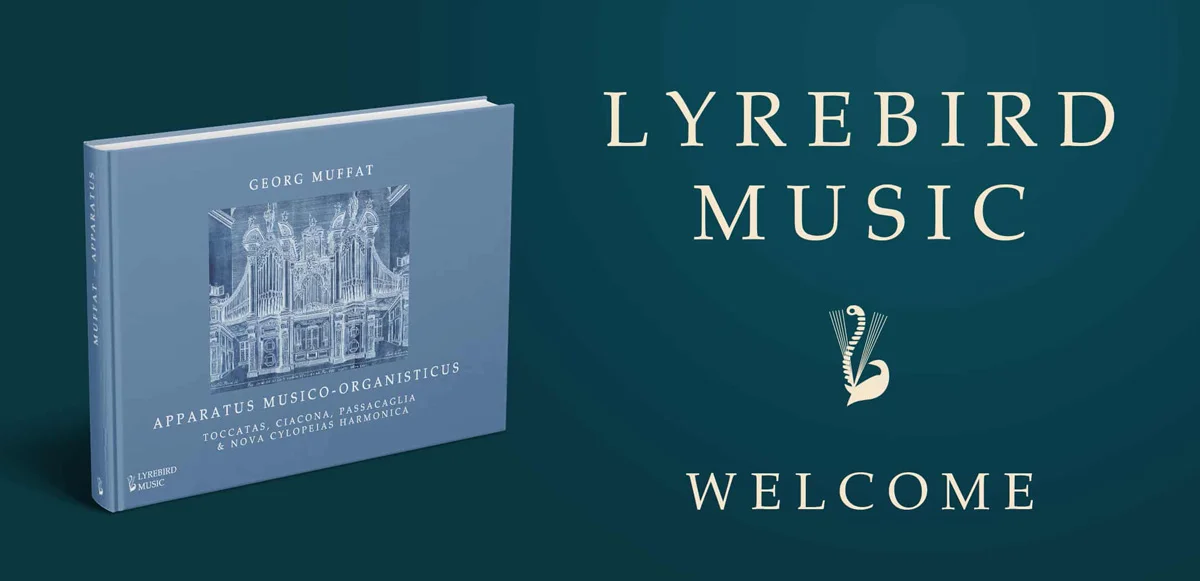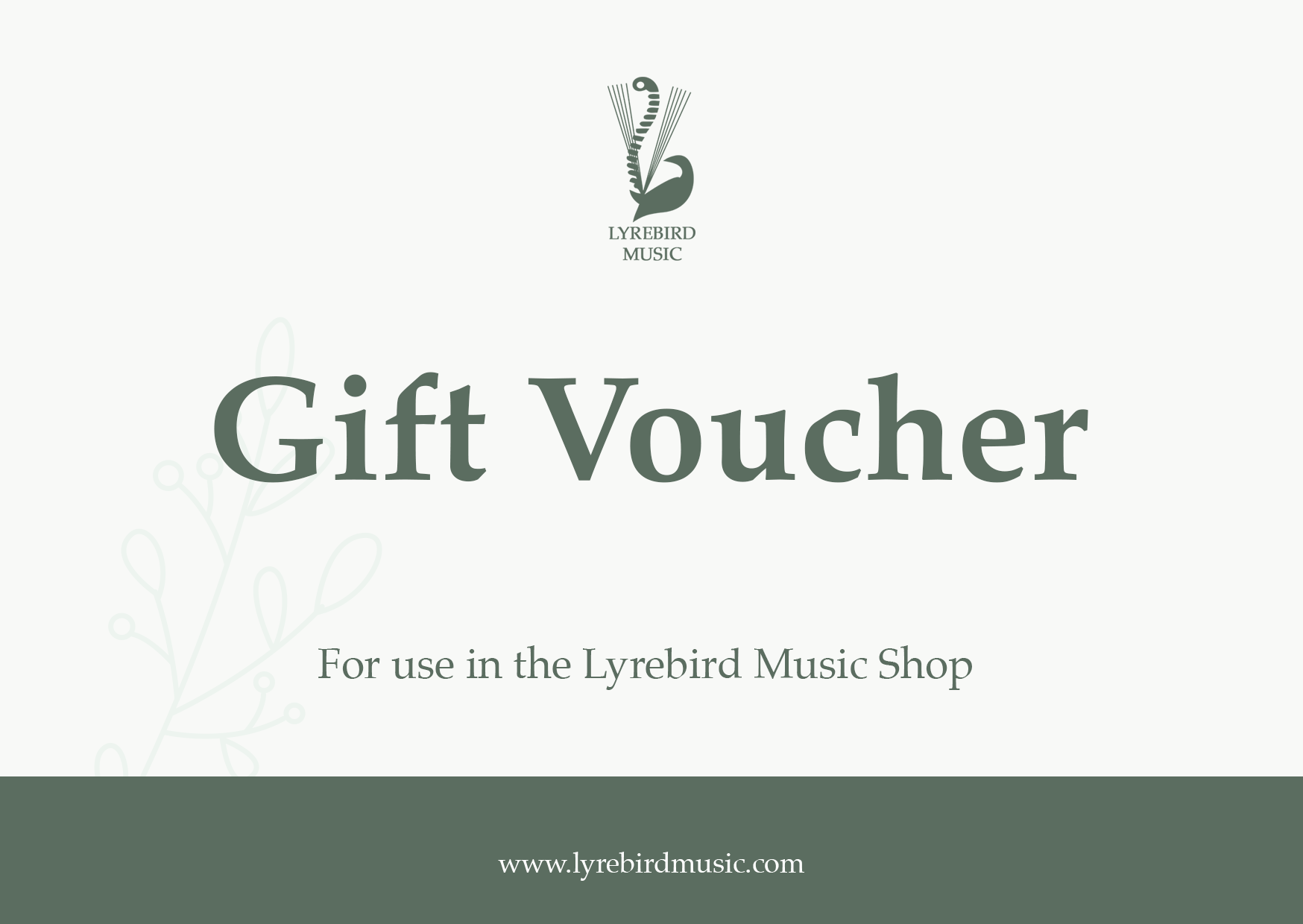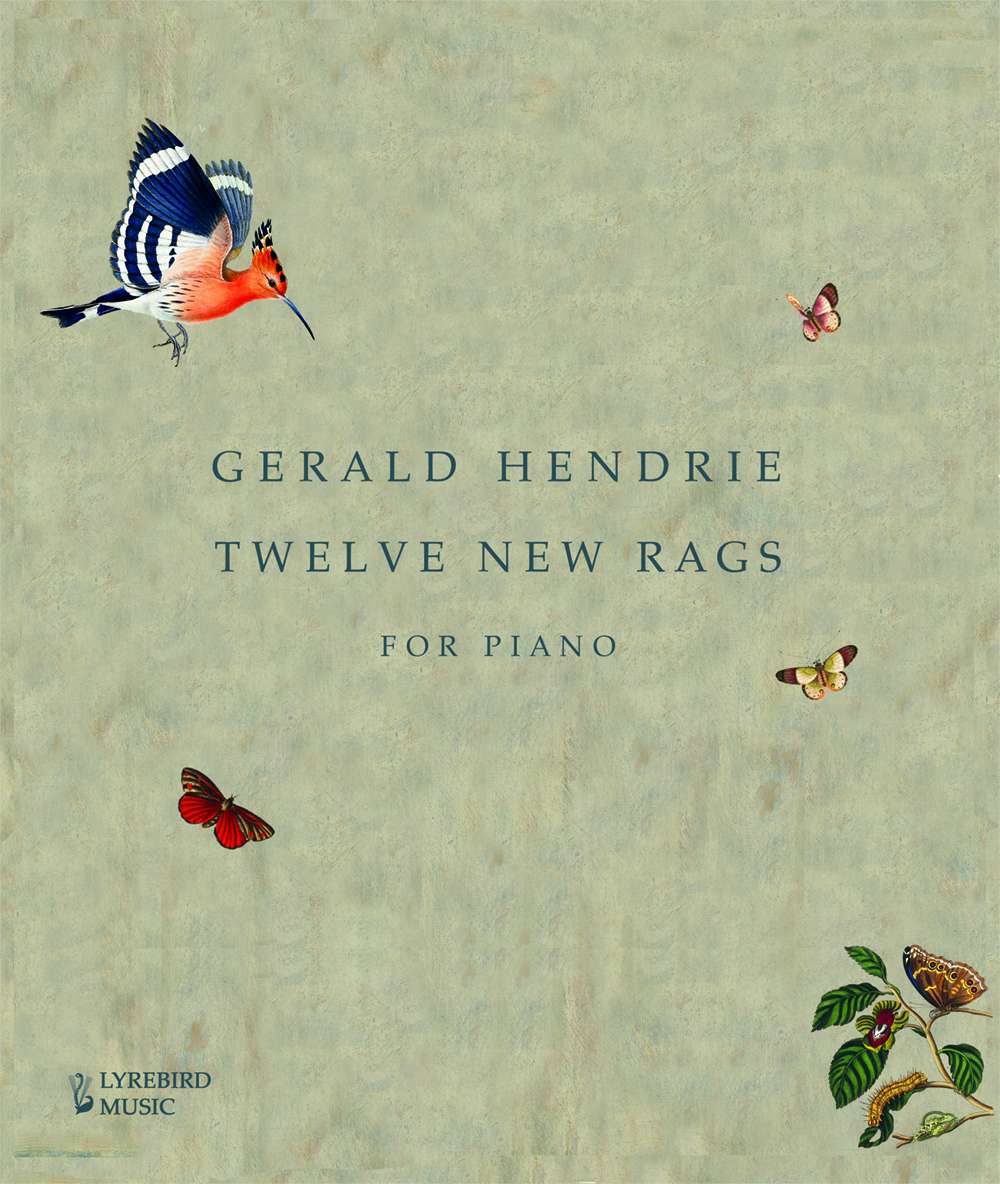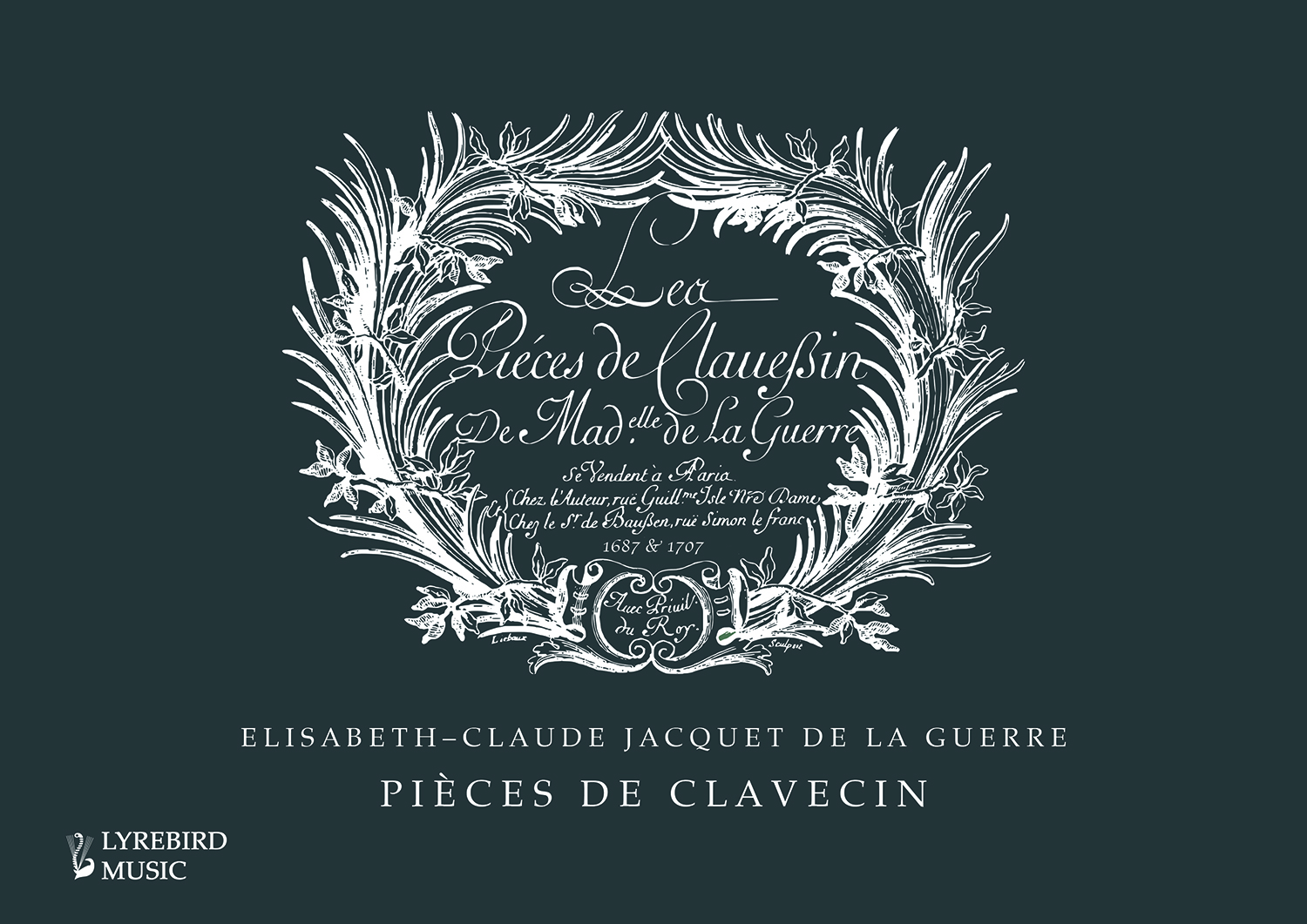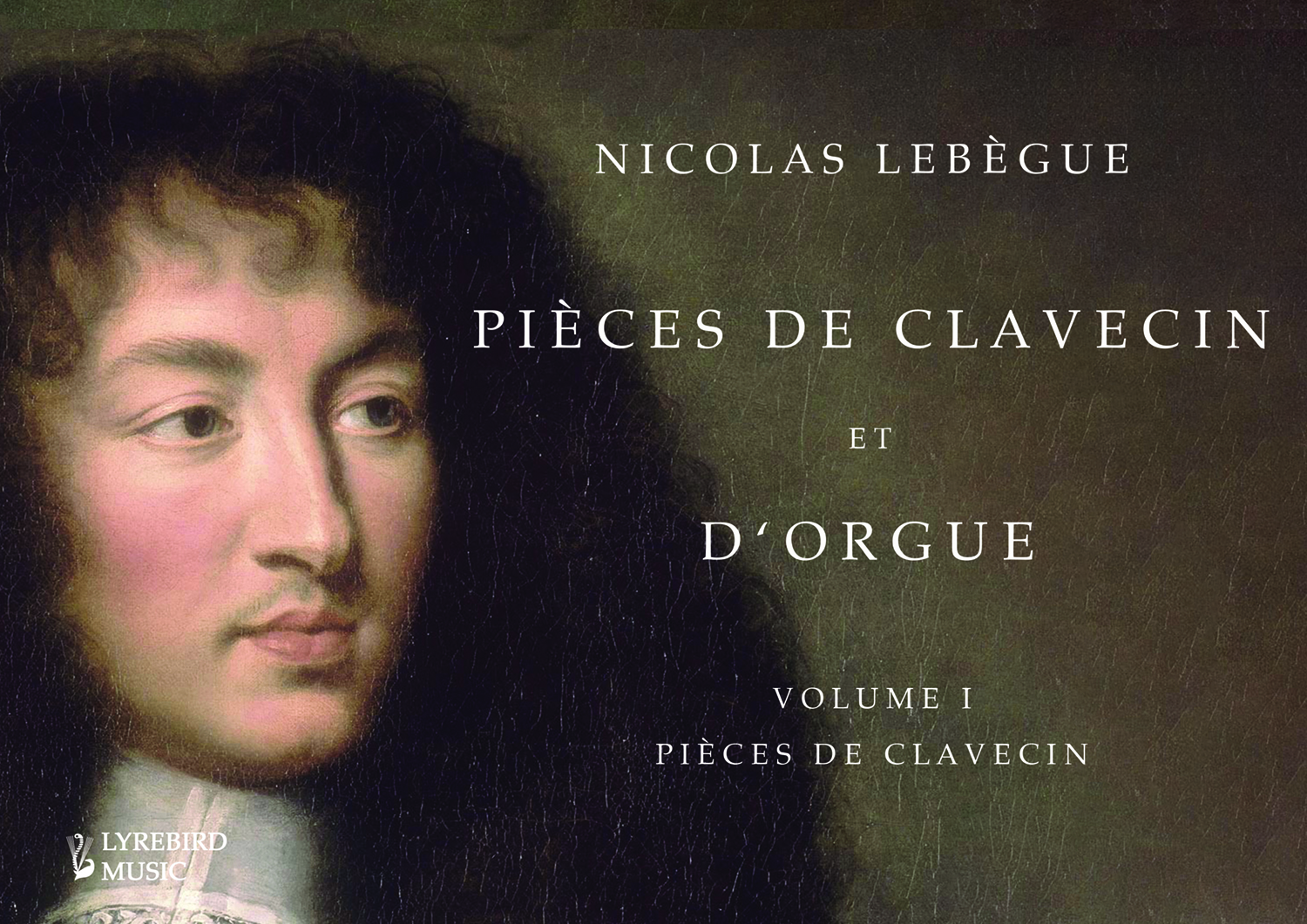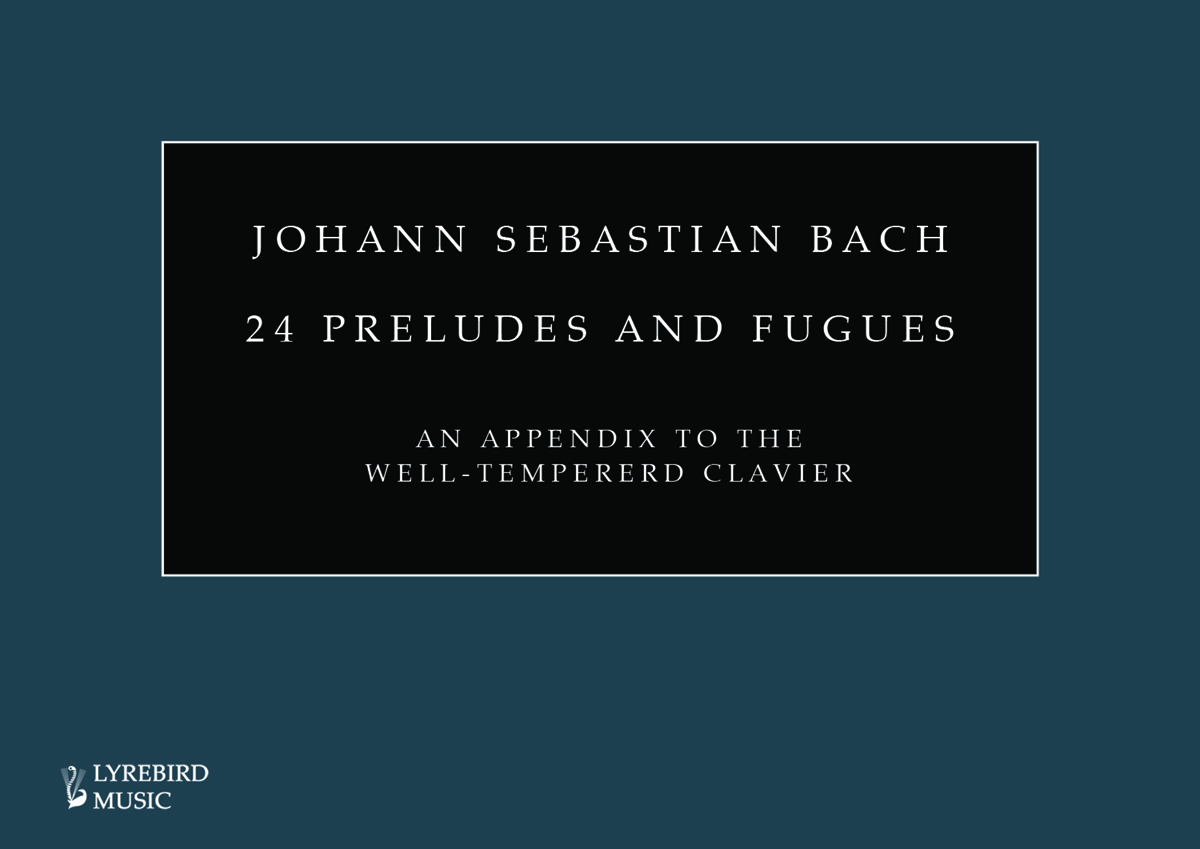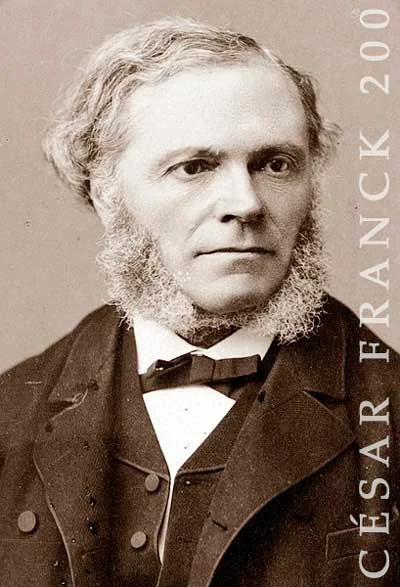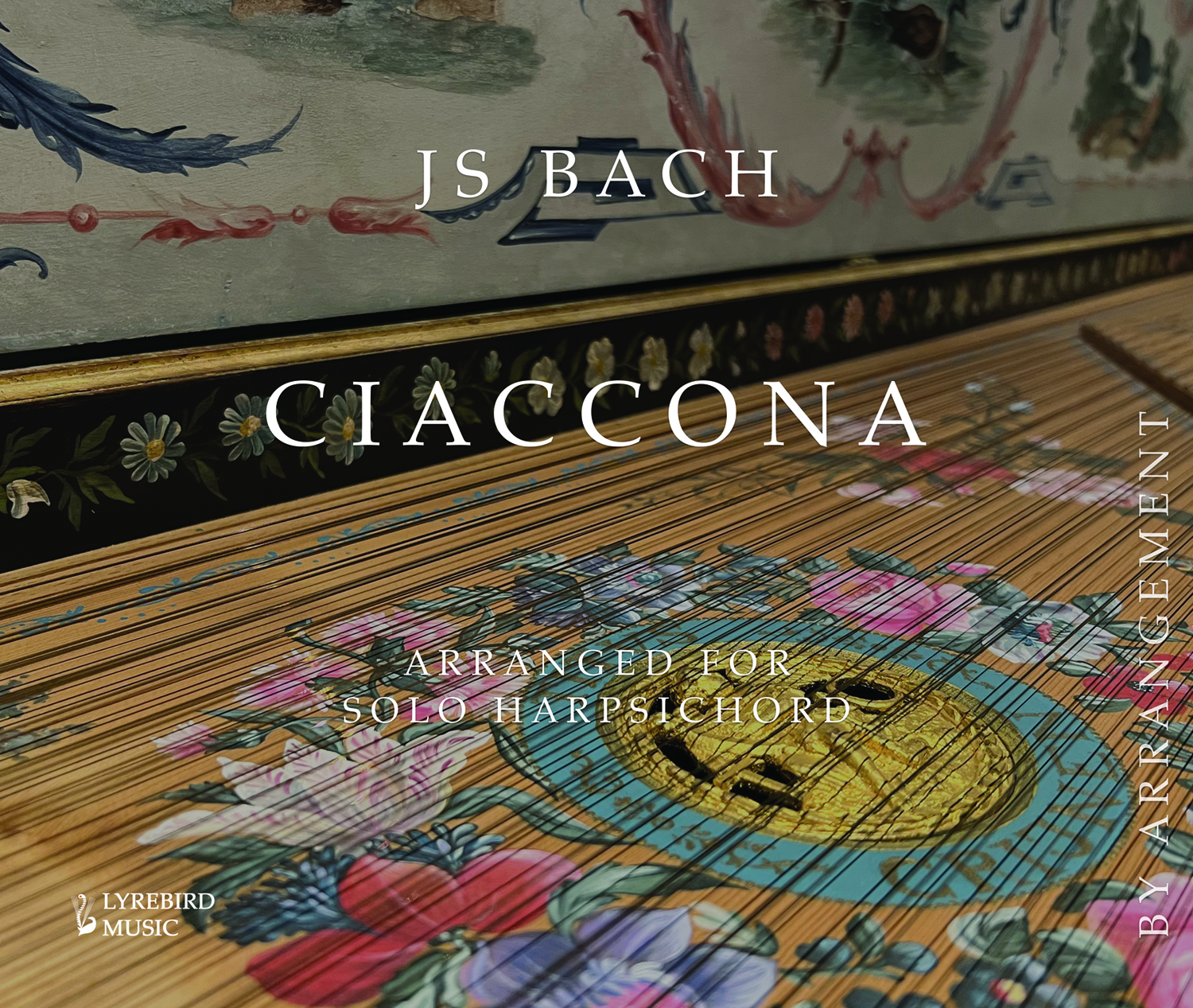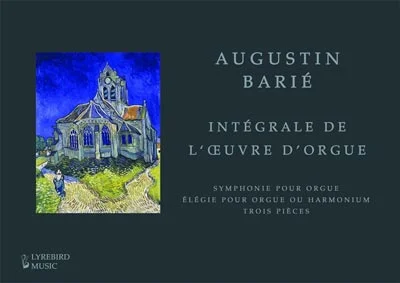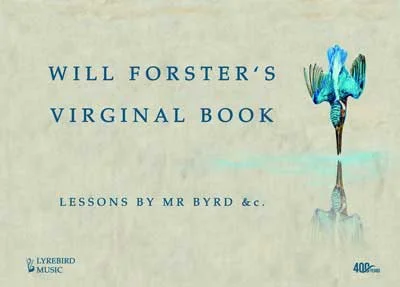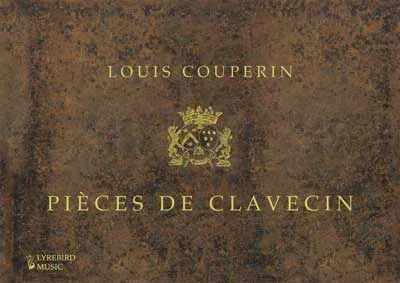W E L C O M E !
Lyrebird Music is an independent publisher of critical editions of keyboard music, which was founded in late 2020. Our 40 or more publications range from the sixteenth century until the late Romantic period, and our emphasis is on scholastic performing editions that fill gaps other publishing houses avoid. Our catalogue includes the first editions in over a century of The Fitzwilliam Virginal Book and My Ladye Nevells Booke, Anne Dawson, Her Book (1716) –– which contains a remarkable collection of Vivaldi concerti transcriptions and occasional pieces by European composers, a new source of Rouennais organ music, Le Manuscrit Caumont Orgue and the first edition in nearly half a century of François Couperin’s Pièces d’Orgue and, in 2022, a new edition of César Franck’s organ music that marks the bicentenary of the composer’s birth has been joined by the first edition in nearly forty years of Louis Couperin’s harpsichord music. 2023 saw the first-ever edition of Will Forster’s Virginal Book, a major source of William Byrd’s keyboard music––released to mark the 400th anniversary of the composer’s death––and a critical edition of the complete organ music of Augustin Barié.
Our mission is straightforward: Lyrebird insists on the highest quality of its editors and underlines the importance of performance practice. We strive to reproduce as many aspects of original editions and manuscripts as is sensible, placing today’s players closer to the music, its composer and those who first played it. Please read on to find out more!
Looking for the perfect gift?
Lyrebird Music now offers digital gift cards — a thoughtful and flexible way to treat the musicians and music lovers in your life. Gift cards can be purchased either through our online store or directly via the link below. You choose the amount, and your recipient will receive an email containing a unique code along with clear instructions on how to redeem it at checkout.
The value of each card can be spent over multiple purchases until the full amount is used. Remaining balances can be checked at any time via the link provided in the confirmation email. Whether for a birthday, celebration, or simply to show appreciation, a Lyrebird Music gift card is a simple yet personal way to share the joy of music.
New: Livre de tablature de clavescin de Monsieur Druent, écrit par Couperin
Discovered in a private collection in 1997, this unique harpsichord manuscript—copied by Marc Roger Normand, cousin of François Couperin—illuminates the rich landscape of late seventeenth-century French keyboard music. Featuring 58 works by Lully, D’Anglebert, Chambonnières and others, the collection reflects a thriving repertoire shaped by courtly taste and transcription practice.
Edited by David Chung, this first complete edition provides an essential resource for scholars, performers and libraries specialising in Baroque music and manuscript studies.
New: Tchaikovsky: Symphony No. 5 – Transcribed for Organ by Andrew Dewar
Tchaikovsky’s Symphony No. 5 (1888) remains one of the composer’s most enduring and emotionally charged orchestral works, celebrated for its lyrical themes, vivid orchestration and dramatic sweep. In this striking new transcription, Paris-based virtuoso organist Andrew Dewar brings the full force of Tchaikovsky’s symphonic vision to the concert organ.
This transcription offers a faithful, idiomatic rendering of the original, capturing the expressive power and structural clarity of the symphony while making full use of the organ’s tonal possibilities. It is an invaluable addition to the growing body of serious orchestral transcriptions for the modern recital organ.
New: Gerald Hendrie –– Four Concert Rags for Organ
Four Concert Rags for Organ presents Gerald Hendrie’s own arrangements of four pieces from his Twelve New Rags for Piano, here adapted for the organ. To these is added a supplementary rag from the same piano collection, creating a set of contrasting works that reinterpret ragtime through the lens of a modern composer with deep contrapuntal and formal command.
These are not mere transcriptions. Hendrie has imaginatively reshaped the pieces to exploit the organ’s expressive range, clarity and tonal breadth. The results are witty, elegant and harmonically rich—faithful to the rhythmic vitality of classic ragtime, yet coloured by a refined, individual voice.
Together, these concert rags expand the organ repertoire with charm and originality. They offer performers a fresh and rewarding encounter with ragtime, recast in a medium rarely associated with the genre yet wholly suited to its structural and rhythmic potential.
New: Gerald Hendrie –– Twelve New Rags for Piano
The organ music of Gerald Hendrie is currently undergoing a welcome revival and will soon be available in a series of volumes published by Lyrebird Music, marking an important contribution to the modern organ repertoire.
Hendrie’s distinguished legacy as a composer for the instrument is being recognised anew, and Lyrebird Music is equally pleased to announce the publication of its first collection of contemporary piano music: Twelve New Rags for Piano, a striking and original set of works. Composed in a quiet hillside village in southwest France, the collection evokes the serenity of the surrounding landscape and the rhythms of seasonal birdlife that inhabit it.
Among its inspirations is the vivid arrival of the hoopoe, a rare and colourful visitor from Africa whose appearance each spring is a memorable event. These modern piano rags are deeply reflective of the natural world in which they were written. While they honour the spirit and vitality of classic ragtime, Hendrie’s rags introduce a refined, cerebral complexity that sets them apart. Sophisticated yet accessible, they represent a distinctive voice in the evolution of the ragtime tradition.
New: Michael Whytock –– Six Meditations on Gregorian Themes for Organ
Lyrebird Music is pleased to announce the publication of a captivating set of organ pieces inspired by Gregorian chant and infused with minimalist elements, composed by British organist, Michael Whytock. These evocative works blend tradition and modernity, offering both liturgical depth and recital appeal. Perfect for organists seeking fresh, expressive repertoire grounded in sacred music heritage.
These miniatures are ideally suited for both liturgical use and as concert pieces and consists of meditations on:
- Hosana Filio David
- O Oriens – O Morning Star, Splendor of Light Eternal
- Ressurexi, I am risen and behold
- Ubi Caritas
- Ave Maris Stella
- Alleluia – Mode IV
The book is available in two formats: wire-bound or as a tablet download.
New: Elisabeth Jacquet de la Guerre – Pièces de clavecin
A new edition of the complete harpsichord music of Elisabeth-Claude Jacquet de la Guerre, darling of Louis XIV and hailed as a prodegy from the age of five. The edition contains both the 1687 and 1707 books; the preface examines the composer, music and issues surrounding performance practice, while the commentary contains tips on performing individual pieces.
The book is available in three formats: hardback, wire-bound or as a tablet download.
New: Nicolas Lebègue – Pièces de clavecin et d’orgue, Pièces de clavecin | Pièces d’orgue | Pièces attribuées
A new series containing the complete keyboard music of Nicolas Lebègue begins with the harpsichord pieces from printed and manuscript sources. This handsome set contains Lebègue’s complete music from print and manuscript sources and are available individually or as a complete set at an attractive a discount rate.
Series editors: David Ponsford (organ) and Jon Baxendale (harpsichord and attributed pieces)
Visit Volume I >>> | Visit Volume II >>> | Visit Volume III >>>
New: JS Bach: 24 Preludes and Fugues – An Appendix to the Well-Tempered Clavier
The purpose of this volume is to make available a substantial collection of individual Preludes & Fugues from throughout Bach’s career, many of which are relatively little played in their original form. The selection offers some useful preparatory material for those intending to study The Well-Tempered Clavier; the possibility for comparison of Bach’s compositional manner in different keys; and useful sight-reading material for more advanced players.
Edited and arranged by Francis Knights
César Franck 200: Intégrale de l'œuvre d'orgue – Second Edition
In 2022, Lyrebird Music was thrilled to publish the first authoritative critical edition of César Franck’s principal organ music in four volumes that covered the three distinct periods of the composer’s life. The edition received critical acclaim worldwide, though editor Richard Brasier was far from completing his task. Today, his work on the remaining organ and harmonium pieces was completed with a further four volumes containing all the known liturgical organ music, harmonium works, Franck’s transcriptions of Charles-Valentin Alkan’s Préludes et Prières and the improvisational themes in this handsome four-volume supplement.
The new edition contains a revision of Volume I –– Preface and Commentary and, aided by the guardians of Franck’s musical estate, now includes images that have remained private since the composer’s death, fresh information on aspects of performance practice and style. The second edition includes previously unknown works, including one from a valuable autograph manuscript that has remained unknown and uncatalogued since it was first penned.
Read More …
Important features of this second critical edition include:
- A foreword by renowned Franck scholar, Marie-Louise Langlais
- An erudite preface and commentary of 180,000 words on Franck’s works for organ and harmonium, the instruments he played (including his harmonium at Sainte-Clotilde), and his work as a liturgical organist, accompanied by examples, colour images, plates, and facsimiles
- A thorough evaluation of the organ and harmonium works based on every available source
- The first publication (engraving and colour facsimile) of Andante et Prière CFF 39bis for harmonium
- Full colour facsimile of Pièce Héroïque (Trocadéro manuscript)
- Full colour facsimile volume of Franck’s improvisation themes, with annotations
- Never-before-seen images of Franck’s family, provided to the editor by his descendants
- A complete catalogue incorporating those of Georges Franck, Vincent d’Indy, Wilhelm Mohr and Joël-Marie Fauquet
- The first modern edition of Pièces pour l’Office ordinaire and Préludes et Prières de Ch. V. Alkan
J S Bach: Ciaccona (Partite no. 2 for solo violin, BWV 1004), arranged for harpsichord
Arranged by Pieter-Jan Belder Yehudi Menuhin described the Ciaccona from the D minor violin partita (BWV 1004) as ‘the greatest structure for solo violin that exists’. His praise is amplified in the numerous keyboard versions that have come down to us. These include arrangements for solo piano by Johannes Brahms, Robert Schumann and Ferruccio Busoni, and other versions have appeared for one hand, piano duet and, more recently, for four hands and feet at the same organ (Lyrebird Music, LBMP–038). Remarkably, few versions have been published for the harpsichord, which Pieter-Jan Belder addresses in this astonishing arrangement, which he first recorded on his CD Basso Ostinato: Passacaglias and Chaconnes (Brilliant Classics 95656). Belder’s version is here provided twice, allowing performers a choice of using basso continuo or fully realised passages for the chaconne’s highly rhetorical arpeggiated sections.
I must say how handsome all your productions are! But also the sheer wealth of information in the prefaces puts me so much in mind of the scant info we as younger players had to piece together when embarking on French Baroque music in particular! To have so much info in one place finally is a huge help for young players, and also helps older players to remember what they painstakingly pieced together years ago!
Le Livre d’Orgue de Limoges
The renowned organist Michel Chapuis once described Le Livre d’Orgue de Limoges as ‘one of the most superb discoveries of the last 50 years’. The manuscript was probably copied during the 1770s or later, and although no composers’ names are provided, we know the music of three from other sources: André Raison, Gilles Jullien and Gaspard Corrette. However, these make up just thirteen of its 53 pieces. The manuscript’s anonymous scribe carefully chose an erudite series of versets, including a suite on the hymn Ave Maris Stella and the only known paired pieces in the French Classical repertoire.
In an extended preface, this new critical edition examines the music, how and why manuscripts came into being, registration and aspects of performance sourced from Marie-Dominique-Joseph Engramelle and Dom Bédos de Celles, whose own publications are ideally suited to the manuscript’s date.
Augustin Barié: Intégrale de l’Œuvre d’Orgue
The sudden death of Augustin Barié in 1915 robbed the world of one of its most promising composers. With an output of just three publications, the five-movement Symphonie pour Orgue, the evocative Élégie and Trois Pièces, Barié was destined to become a composer equal to his teacher Louis Vierne and Charles-Marie Widor. The English writer on music, Harvey Grace, described Barié as ‘a young man, [who] seems likely to loom large in French organ music’, and Vierne described his pupil’s music as audacious in its harmony, with rich polyphony, elegant design, and poetic detail. This edition is the first time the collected works have been edited and brought together in print. The music contains alternative solutions to challenging passages, and the preface discusses aspects of performance. A complete critical commentary provides further solutions for fingering and, as an appendix, includes the first English translation of René Vierne’s invaluable Méthode pour Orgue-Harmonium.
Will Forster’s Virginal Book –– Lessons by Mr Byrd &c
The copying of Will Forster’s Virginal Book was completed on ’29 Januarie’ 1629, when the Forster of the title appended his signature to the index page. We know much about Forster since he was an important member of his guild and, fortunately, because records of his life survived the Great Fire of London in 1666. Forster had a ‘harpsicall’ and a large chest of viols, which were to be divided between his children after his death in 1645.
It is one of the most important Jacobean keyboard sources, and music by William Byrd makes up over half of its 72 pieces. Despite this, the book has never previously been edited. This edition, from the desks of Jon Baxendale and Francis Knights, coincides with the 400th anniversary of Byrd’s death on 4 July 1623.
Lyrebird Music has established a well-deserved space in the music-publishing industry: high quality and carefully considered editions offer something new for experienced and inexperienced players alike. Well-reasoned and thorough scholarship has guided editorial decisions, but these processes do not get in the way of the music itself. Players are left confident and free to consider their own musical decisions, in the knowledge that the music they find has come from carefully selected original sources. With its dedicated ethos, expert editorial team, and multiple specialisms, Lyrebird is an exciting enterprise to watch in the coming years.
Louis Couperin: Pièces de clavecin
A new critical edition of Louis Couperin’s Pièces de clavecin from the desk of editor Jon Baxendale. The new edition contains all the available works, with a clean engraving that maintains the visual aspects of the original sources.
A substantial preface of over 20,000 words looks at the composer, his music, rhetoric, ornamentation and a host of other topics including tips on playing the most baffling pieces of the baroque, the so-called préludes non mesurés.
A full critical commentary discusses difference in the two principal sources, the Bauyn and Parville manuscripts, providing alternative readings from other sources (both manuscript and printed), suspected errors and possible alternative readings.
Scholastic Editions
Our editions are prepared by renowned scholars and performers, contain full critical reports and notes on background, performance practice, and style.
Critically Acclaimed
Our work has been critically acclaimed in leading early music and professional journals, and has caught the eye of a number of performers for recordings and videos.
Quality
As musicians we understand the need for quality material and provide the option of either hard- or wire-bound editions printed on heavy paper to ensure a lifetime of use.
Hard Copy and Digital
Musicians’ needs vary as time progresses. Lyrebird scores are now available for the first time as digital downloads at a smaller cost, allowing you to print or save to your tablets.
My copy of the new Lyrebird edition of Franck arrived today. In our age of free downloads of old editions, its cutting-edge scholarship and elegant quality prove that new high-end editions are still essential.
The quality of these hard-backed volumes, generally edited by Jon Baxendale is second to none with extensive performance notes, registration tips included. It is clear this is a labour of love; having seen so much sheet music through the years, I can safely say that this is the best I have seen in terms of production quality. These volumes will sit in pride of place on any bookshelf and will be treasured for many years to come.
This new critical edition, complete with an erudite and extensive preface is welcome … The standard of editorial work throughout is exemplary, including extensive critical notes … [and] notes on performance style and ornamentation are excellent.

